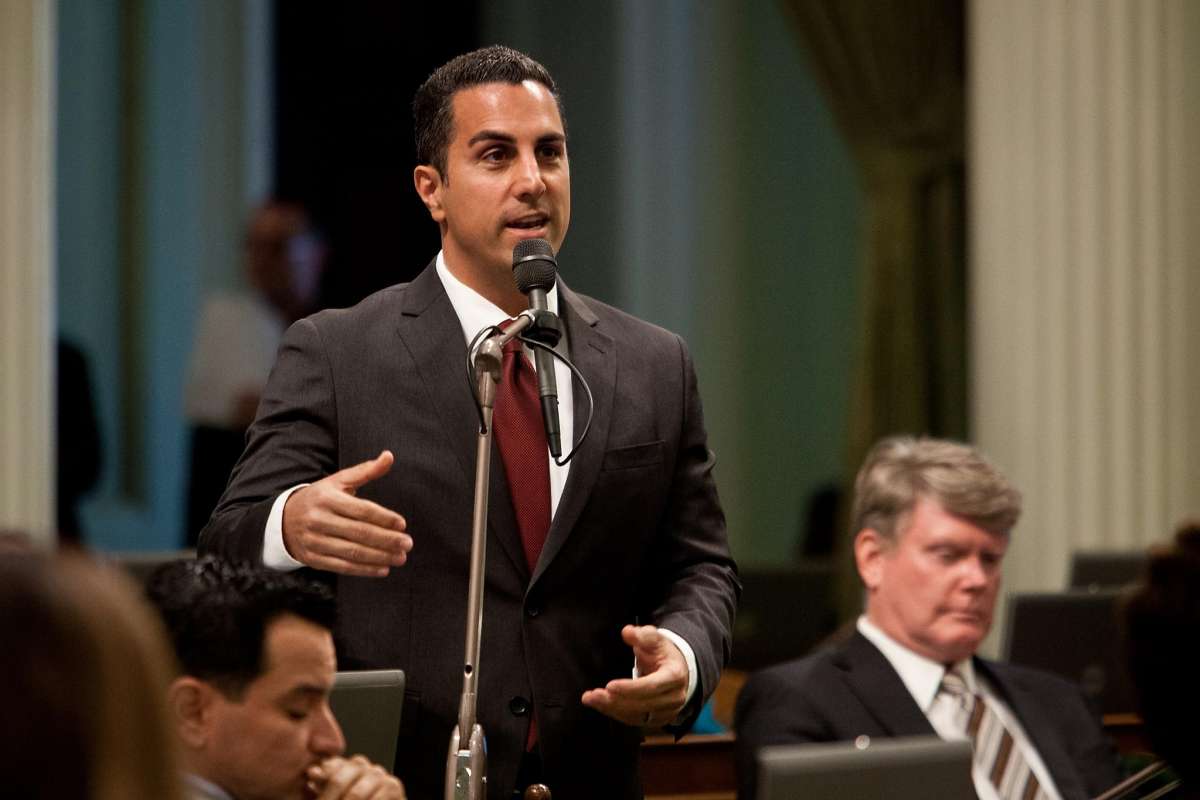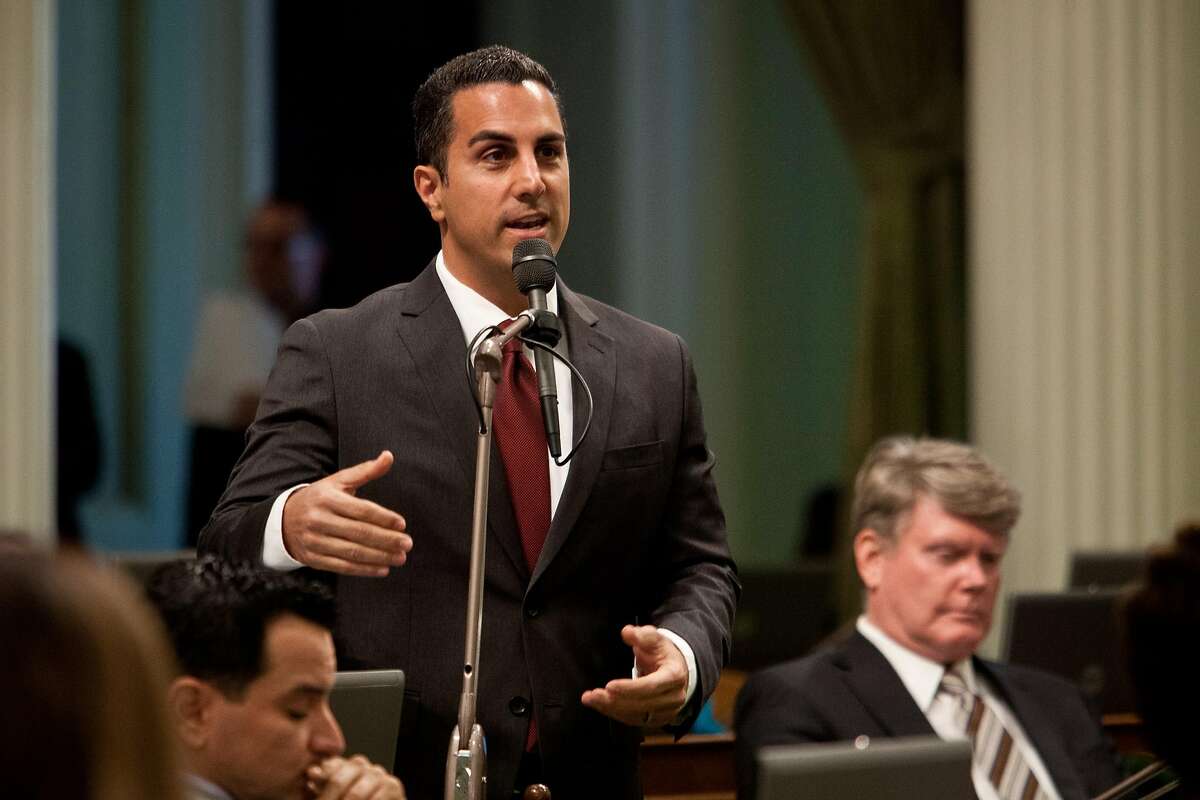Ballot measure would tighten up rules for dealing with bad street behavior


In a move that could radically change California’s approach to homelessness, a former assemblyman has started a signature-gathering drive for a November ballot initiative that would call for the strict enforcement of “quality of life” laws, which deal with behavior such as public drunkenness or drug use and defecating in public. Offenders would be to be sent to special courts, where they could be sentenced to shelter programs or mandatory rehab.
“It would treat such behavior as a cry for help and a sign that the person cannot make wise decisions,” said former state Assemblyman Mike Gatto, the initiative’s author.
Once a defendant has completed his sentence, his conviction would be expunged, so he would have no criminal record that might hinder him from getting a job, housing or public benefits.
Gatto said the idea behind the California Compassionate Intervention Act is to strike a balance between criminalizing homelessness — often seen as too harsh — and policies that ignore quality-of-life crimes as an unfortunate byproduct of homelessness — often seen as too lenient.
“If you or I were to commit one of these acts, we would face the consequences, and likely have friends and family intervene,” Gatto said. “This would be the government staging an intervention.”
Gatto is a Democrat and served in the Assembly from 2010 to 2016. He lives in Los Angeles, works as lawyer and doesn’t own a car. As a result, he spends a good deal of his time on mass transit, “so I have seen quite a lot of this type of behavior,” he said.
The initiative’s title and summary have been cleared by the attorney general’s office, so the next step being is collecting by May the roughly 620,000 signatures needed to qualify for the November ballot.
Gatto doesn’t have any large donor groups bankrolling the campaign. Nor has he received endorsements from elected officials.
And he hasn’t asked.
“Many of them have been part of the problem, or the public perceives them to be,” Gatto said. “Call me naive, but I want the campaign to be about the initiative, not about who is backing it.”
But Gatto said he doesn’t need big money to qualify the initiative, in part because professional signature gatherers — those people with clipboards who stop you on the way out of the supermarket — the campaign plans to hire in the coming week see the initiative as “top of the stack.” That means the measure will get people’s attention and make it easier for the gatherers to pitch other, less interesting measures they’re also hawking.
“This is not going to take $2 million to qualify,” Gatto said.
Not that the measure is without opposition.
The Western Center on Law & Poverty has said the arrest and rehab plan would “take California back into the dark ages of mass institutionalization of people with perceived or real mental illness. Such zero tolerance approaches only exacerbate racial and class disparities through an overly aggressive criminal justice system.”
Another rub could be the increased cost to the courts, and substance and mental health treatment programs, which “could be in the hundreds of millions of dollars annually,” according to the proposition’s summary.
“Some or all of these costs would be funded by a shift of about $860 million in existing state revenues ... and certain mental health programs. State and local governments could face ongoing cost to replace this funding,” the attorney general’s summation states.
Gatto agrees that the initiative would shift tax dollars, but he contends the money is being misspent and that the costs of the program “are far cheaper than the costs the system bears now with street cleanups, emergency-room visits, disease outbreaks and crimes.”
The measure is bound to start a debate, but whatever the outcome, early polling indicates that if the measure qualifies for the ballot, it stands a very good chance of passing.
A recent statewide poll by 3M Research found that 90% of the voters surveyed listed homelessness as the No. 1 problem facing the state — 87% of the voters in the Bay Area listed it as the top problem.
“It was remarkable” to get voters’ views on a variety of issues headed for the November ballot, said Democratic consultant Chris Tapio, whose firm commissioned the poll, taken from Nov. 21 to 27.
“In all my years of polling, I’ve never seen 90% of the voters agree on anything, but they all agree that homelessness is the top problem,” he said.
The poll also found 73% of the voters support Gatto’s measure.
Tapio said voter support for the initiative appears to be borne of frustration with state and local governments and law enforcement dealing with the problem.
“This could be a Proposition 13 moment,” Tapio said, referring to the landmark property tax reform initiative passed by voters in 1978 after years of legislative inaction.
Handling homelessness may be reaching the same tipping point.
For while hundreds of millions of dollars have been spent on shelters and other programs — Gov. Gavin Newsom even convened a special task force on homelessness — behavior on the streets only appears to be getting worse.
“At this point, voters are so fed up and so tired that they just want the problem fixed, and Gatto’s initiative is the only thing out there,” Tapio said.
San Francisco Chronicle columnist Phil Matier appears Sundays and Wednesdays. Matier can be seen on the KGO-TV morning and evening news and can also be heard on KCBS radio Monday through Friday at 7:50 a.m. and 5:50 p.m. Got a tip? Call 415-777-8815, or email pmatier@sfchronicle.com. Twitter: @philmatier
 Pathways Drug Rehabilitation Luxury Addiction Treatment & Detox Center
Pathways Drug Rehabilitation Luxury Addiction Treatment & Detox Center


